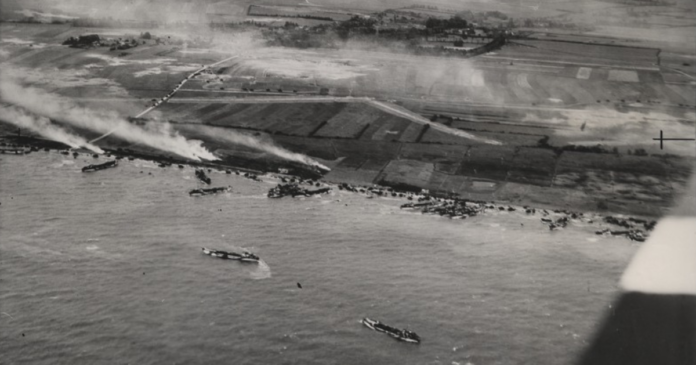In the lead-up to the 80th anniversary of D-Day, CBC Kids asked viewers whether or not it’s important to commemorate such battles due to the violent nature of war.
“Is it important to commemorate battles like D-Day? Why or why not?” asked the CBC Kids website.
D-Day was the largest seaborne invasion in history and marked the turning point in the Allied forces defeating the Nazis in the Second World War. It took place June 6, 1944.
“It can be argued that commemorating military battles is celebrating and glorifying war,” reads CBC Kids’ website. “But it can also be seen as a moment of reflection on the importance of peace.”
“So what do you think? Is it important to remember and honour our military past? Or is it celebrating violence?”
The page then offers a text box for people to fill out their opinions on the subject.
The debate posed by the state-funded broadcaster was not well received, with many Canadians taking offence to the CBC’s framing of one of Canada’s greatest contributions on the world stage.
“This shouldn’t have to be said because it’s an elementary point, but such is the intelligence level of CBC staffers: commemorating D-Day is the opposite of glorifying violence,” reads a user post from X in response to the story. “It’s about recognizing the contributions of our soldiers in ending violence at great personal expense.”
“To paraphrase a famous author, ‘evil flourishes when good men stay silent’. Children must learn the difference between good and evil and to speak/act against evil recognizing that action comes at a cost,” wrote another X user.
“We’re not celebrating violence, we’re celebrating freedom and the sacrifices that real heroes made for their country and its citizens,” wrote another.
“While the intention of our question was rooted in engaging kids about D-Day, we fully recognize the words we used to approach that topic were inappropriate,” CBC spokesperson Chuck Thompson told True North.
“We have since acknowledged as much on the site and revised the headline and copy accordingly.”
The title has since been changed to, “Do you commemorate D-Day and what does it mean to you?”
Of the almost 150,000 Allied troops who landed on or parachuted onto the beaches of Normandy, France, 14,000 were Canadian.
The invasion area that the Canadians assaulted was a beachfront code-named “Juno,” with Canadian paratroopers landing elsewhere along the area.
While 359 Canadians were killed, D-Day ultimately achieved its goal.
It was a brutal battle as the Allied forces had to run into heavy German artillery, machine guns and an area littered with landmines.
The Royal Canadian Navy was also present on D-Day, contributing 110 ships and 10,000 sailors to support infantry soldiers in the landing, while the Royal Canadian Air Force bombed specific targets inland and protected the sky above from enemy aircraft.
A ceremony at Juno Beach to commemorate the 80th anniversary took place Thursday, with Prime Minister Justin Trudeau and 13 Canadian veterans in attendance.
One of the veterans in attendance, aged 104, was present on Juno Beach during the invasion.















